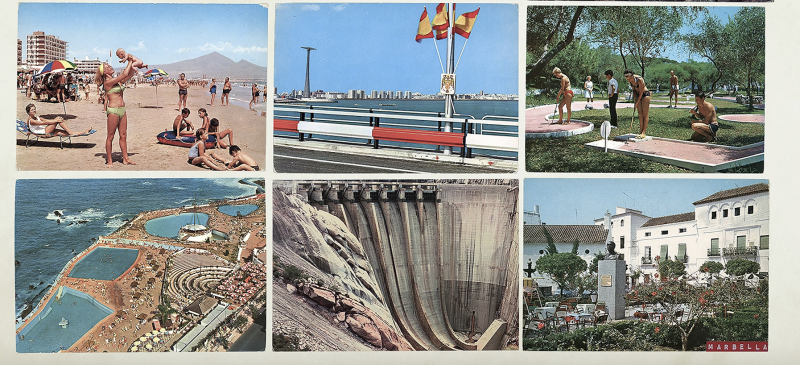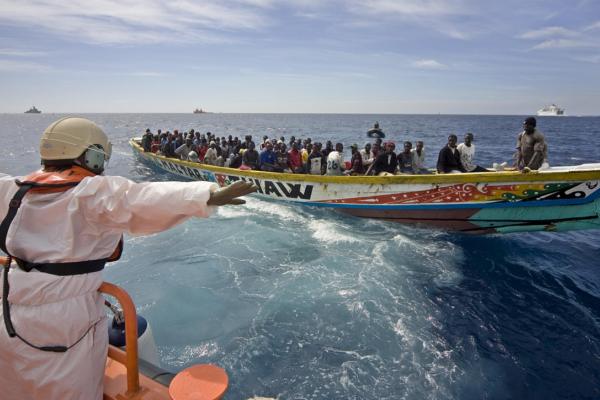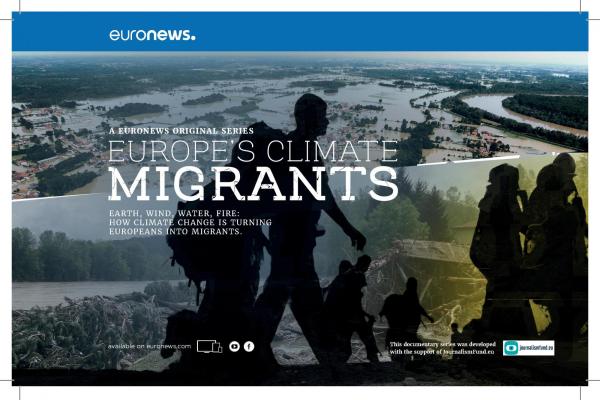This workshop series invites participants to investigate Europe’s environmental memory by examining land use, drought, and climate-related disasters – topics often underreported or disconnected from their historical context.
The training integrates archival research, field investigation, and data mapping to support the production of rigorous, evidence-based reporting.
Sessions are being delivered both online and in person, led by experts in journalism, science communication, photography, and digital cartography.
The program is led by Jordi Jon Pardo, a creative journalist, documentary photographer, and National Geographic Explorer. His work explores the intersection of environmental issues and historical memory.
Jordi is also the co-founder of MÓN, an independent environmental journalism platform based in Spain. Projects such as "Eroding Franco and Reimagining: The Spanish Civil War" have established the organization’s approach to investigating the roots of today’s ecological conflicts through long-form, interdisciplinary storytelling.
Format & Location
Primarily online, with efforts underway to host select in-person sessions in Barcelona to support fieldwork and hands-on investigation.
The program is entirely free of charge and designed to support young journalists with strong narrative potential in producing a reportage. Selected participants will receive a €300 stipend to support reporting and production expenses.
Participants will be guided by established professionals in documentary photography and will take part in virtual classes and debates. The sessions will be a space for dialogue, where participants can refine their stories and connect them to the wider questions of environmental memory.
Program Structure
Masterclasses (Autumn 2025 – Winter 2025): each mentor will lead an online session open to selected participants.
One-to-one Mentorships (Winter 2026 – Spring 2026): participants will work closely with an assigned mentor to develop their project.
Final Presentation (Spring 2026): the program concludes with the presentation of the completed reportages on memory and the environment.
Eligibility
Open to visual journalists or documentary photographers of any nationality, provided they are working in Europe.
Applications may explore:
- Environmental degradation and resilience (themes such as deforestation, desertification, pollution, climate displacement…).
- The memory of landscapes, using archives, maps, and photographs to reconstruct ecological transformations.
- Community adaptation and resistance to environmental change.
- The interplay between past and present, where visual storytelling connects history, policy, and lived experience.
Through these ideas, participants are expected to create projects that document ecological change and reveal its historical depth and human impact.
Trainers:
- Pietro Paolini (TerraProject Collective, Italy): Co-founder of TerraProject, Pietro specializes in rural and industrial landscapes, blending aerial imagery with archival maps to investigate land use changes across Europe.
- Rocco Rorandelli (TerraProject Collective, Italy): A visual journalist whose photo essays on Mediterranean coastlines combine fieldwork with historical cartography to document erosion and community adaptation.
- Florence Goupil (National Geographic Explorer, Peru–France): Based between Lima and Paris, Florence’s work on Amazonian ecosystems integrates multimedia storytelling, such as field photography, indigenous oral histories, and GIS data, to explore themes such as memory and conservation.
- Arne Piepke (DOKS Collective, Germany): Arne’s long-form projects in Central Europe use found photographs and official archives to uncover environmental legacy of industrial policy and social change.
- Mónica Alcázar-Duarte (National Geographic Explorer, Mexico–UK): Known for interdisciplinary works like The New Colonists, Mónica merges photographic archives, augmented reality and astrophysical data to challenge perceptions of Earth’s frontiers.
**
Environmental memory refers to how communities remember, narrate, and transmit their relationship with the environment; from landscapes transformed by war or industry to the marks left by climate change. It connects ecological change with cultural and historical experience, comprehending that memory is not only social, but also environmental.
On the right: Image by Jordi Jon.




